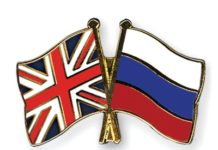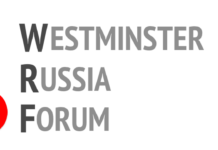Analysing the Russia Report: separating the wheat from the chaff.
Ernest A Reid
The long-awaited Russia Report has finally been released by the UK Parliament’s Intelligence and Security Committee. However, whether it has lived up to all of its anticipants’ expectations is rather a matter of debate. While countless media pundits and pseudo-experts on both sides are already caught up in a frenzy of harvesting it for out-of-context quotes to aid them in their battles against Russia or Britain, Conservatives or Labour, Putin, Johnson or Corbyn, political scientists and security analysts are more likely to find the Report lacking in objectivity and rather revealing Britain’s political plans than making any significant contribution to the existing knowledge on Russia.
First of all, it is necessary to point out that the Report is not an impartial piece of analysis but rather a biased text that seems to use a number of framing techniques in order to promote certain agenda. It begins with an outline of a fairly one-sided ‘Us vs Them’ narrative, in the spirit of Teun van Dijk’s ‘ideological square’, of selfless Britain extending the helping hand to malicious Russia just for Vladimir Putin to fool the West over and over again. While mentioning the death of former double agent Alexander Litvinenko in late 2006 (allegedly organised by the Russian state) as the moment of Russia’s metamorphosis into an ‘established threat’, the distinguished authors seem to omit the ‘Spy Rock’ scandal which had revealed Britain’s less-than-friendly spy activity in Russia earlier that year. In the same fashion, it is Moscow (rather than Washington) that believes in the ‘might is right’ world order, ‘flouting the Rules Based International Order’ is a privilege that cannot be bestowed upon non-Western democracies and the zero-sum game concept is, apparently, exclusive to the foreign policy decision-making of the Kremlin, which seems to be intent on ‘damaging the West’ because it’s ‘good for Russia’. Moreover, the authors attribute Russia’s view of NATO and EU having ‘a far more aggressive posture towards it than they do in reality’ to ‘paranoia’ rather than the military build-up along their borders with Russia, regular military exercises in the region and the economic sanctions.
Hence, with the aid of rather primitive framing tools the introduction sets a very subjective tone for the rest of the Report and has more in common with an average article in The Economist than with a serious government document. However, this is hardly surprising taking into account the line-up of ‘witnesses’ among whom are an American journalist who has indeed worked for The Economist and Washington Times and has been a staunch critic of Russia, a British writer whose books may well be mistaken for pulp fiction with titles such as Spies, Lies and How Russia dupes the West, leaving little to the imagination, and an American-British businessman who has been convicted on charges of tax evasion in Russia and has been one of the initiators of the infamous Magnitsky Act, as well as two essentially more respectable gentlemen who nevertheless are not particularly known for a neutral stance on Russia either. Unfortunately, the quality of sources also varies significantly across the Report, ranging from the undisputedly reputable GCHQ to the likes of BuzzFeed and vague references. All of the above means that one must apply a strong discursive filter when reading the Report in order to separate the wheat from the chaff.
In spite of its ontologically anti-Russian angle embedded within the introduction, the Report does nevertheless make a number of correct (albeit obvious) observations. Among them are the ‘inheritances from the USSR and its status as a victor of the Second World War’ in the form of the nuclear weapons and permanent seat on the UN Security Council as some of Russia’s primary strengths. The report also notes how Russia’s ‘large and powerful’ armed forces and heavily-resourced intelligence services, as well as ‘lack of strong independent public bodies and the fusion of government and business’ (i.e. centralised power) allow it to ‘leverage all its intelligence, military and economic power at the same time’, which gives Moscow a significant strategic (i.e. speed) advantage over Britain with its less centralised and more cumbersome bureaucracy. The Report also identifies some of Russia’s weaknesses, such as its relatively small population, weak economy and ‘lack of reliable partners or cultural influence outside of the former USSR’. The Report also does a good job at defining Russia’s ‘relatively limited’ aims in terms of playing the dominant role in its traditional sphere of influence (former USSR) and keeping its current leadership intact.
Nonetheless, it must be acknowledged that a substantial part of the Report is dedicated to recycling the mainstream media’s standard anti-Russian propaganda schemata and regurgitating the already-voiced UK government positions on Russia’s alleged complicity in Litvinenko’s assassination, Salisbury incident, 2016 US elections outcome, failed Montenegro coup, Brexit and even the Scottish referendum. However, the Report does also introduce some new information, such as GCHQ reports of GRU actors ‘orchestrating phishing attempts’ against a number of Government departments and ‘indiscriminate and reckless cyber attacks targeting public institutions, businesses, media and sport’, as well as apparent ‘links between serious and organised crime groups and Russian state activity’, which certainly are points of concern that must be addressed by Her Majesty’s Government.
Unfortunately, the findings such as the aforementioned revelations are rather scarce, as much of the new information provided to the Committee by GCHQ and other Agencies has been redacted. For instance, when assessing the potential connection between ‘bots and trolls’ and the alleged Russian interference in the EU referendum the Committee had apparently contacted MI5, requesting evidence, and the Agency’s response, as documented in the Report was as follows: ‘MI5 initially provided just six lines of text. It stated that ***, before referring to academic studies’. In the same fashion, the section discussing instrumentalisation of GCHQ and SIS for open source research ends with ‘However, we have found *** which suggests that ***. ***.’ While such heavy redaction may well be necessary for security reasons, they nevertheless obfuscate the essence of the Report and reduce its potential utility as a credible source.
Apart from the section on cyber security there are also sections on ‘Disinformation and Influence campaigns’, which reinforces the idea that any narrative contrary to that of the Western media is ‘disinformation’ (e.g. RT and Sputnik), and on ‘Russian expatriates’, which gives relatively accurate description of the ‘Londongrad’ phenomenon whereby the UK’s lax financial regulations of the previous decades have resulted in Britain becoming a ‘laundromat’ for illicit finances of various Russian businessmen who have come to be ‘well integrated into the UK business and social scene’ by co-opting a variety of people – from PR specialists and lawyers to members of the House of Lords – into their schemes.
However, what is of greater interest are a number of initiatives that seem to be explicitly and implicitly promoted in this document, as they may well be implemented in due course. First of all, one can observe a series of statements in regards to the GCHQ, SIS, MI5 and NCA being under-resourced, both financially and personnel-wise, especially in regards to their Russia desks. Also, a notion of the Agencies seemingly avoiding taking the lead and feeling somewhat secondary in terms of the responsibility for ‘the active defence of the UK’s democratic processes’ seems to be implied several times throughout the Report. These recurring themes suggest that one of the Report’s key goals is to secure more funding for the Agencies, so that they are able to launch new recruitment campaigns and expand their Russia-related operations, and to potentially give the Agencies more powers. Another recurring theme is the cumbersome bureaucracy, which seems to impede Britain’s capacity for rapid response, and the need for ‘greater cohesion’, which suggests that another aim of the Report may well be to initiate a process of de-bureaucratisation (in respect of the Intelligence sector) and maybe even centralisation of power to some degree.
The Report is also apparently promoting tighter control in regards to social media companies (‘requirement for social media companies to co-operate with MI5’) and firmer grip on the UK business community and even the Lords (e.g. potential introduction of an equivalent of US Foreign Agents Registration Act is mentioned rather unequivocally), not to mention highlighting the issue of Russian media outlets in the UK (RT, in particular). We may therefore expect to see a McCarthyist-style witch hunt that would target anyone with ‘Russian connections’, potential ‘Kremlin agents’ – from the usual suspects such as RT and wealthy Russians to British politicians, lawyers and businesspersons of all sorts. Most important of all, the Report seems to advocate for a more aggressive/offensive strategy towards Russia – from development of stronger Cyber Offensive capabilities and curbing of the Russian influence in the former USSR to pressuring countries with moderate and friendly stances towards Russia to review their foreign policy programs (e.g. France is mentioned several times throughout the Report and is portrayed as a victim of Russia unwilling to confront its alleged aggressor) and ‘leading international action’ against Russia’s influence elsewhere in the world alongside the US, with the post-Salisbury purge of Russian diplomats portrayed as somewhat of a benchmark and a diplomatic success.
Finally, as far as dialogue is concerned, there is an acknowledgement of the need for ‘limited channels of communication with the Russian government’, ‘direct conversations’ as means of reducing ‘the risk of miscommunication and escalation of hostilities’ and utilising ‘opportunities to de-conflict military activities in areas where both the UK and Russia have active military presences’. However, the Report rules out ‘any public move towards a more allied relationship with Russia at present’. Furthermore, with Whitehall’s long-term strategy to develop ‘a Russia that chooses to co-operate, rather than challenge or confront’ being mentioned more than once makes one wonder if a gradual regime change strategy is not completely off the table.
All in all, the Russia Report has not revealed anything new in terms of the official UK stance on Russia and has rather reinforced the previously voiced positions of HMG. However, it has revealed a number of initiatives, which, if implemented, may not only decrease any influence Moscow may currently have within the UK, but may well mean a new hybrid offensive against Russia, which is highly likely to lead to overstraining of resources on both sides and further deterioration of Russo-British relations.



